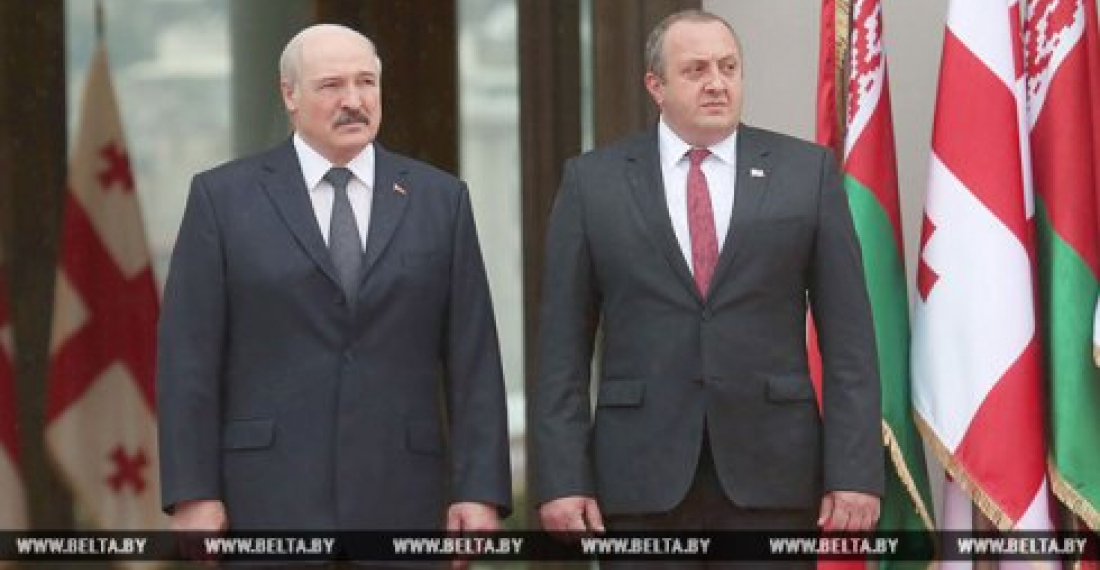The president of Belarus, Alexander Lukashenko, will pay an official visit to Georgia on 22-23 March, where he is expected to be the gueat of Georgian President Giorgi Margvelashvili.
The Belarus news agency BELTA said that President Lukashenko will discuss the current state and prospects of the trade and economic cooperation as well as political cooperation, international contacts, the situation in the world and in the region. After the talks the sides are expected to sign a number of international documents.
The Belarusian is expected to meet with Georgia Prime Minister Giorgi Kvirikashvili, Catholicos-Patriarch of All Georgia Ilia II.
BELTA news agency stated that "Belarusian-Georgian relations have been increasingly vibrant in recent years thanks to the agreements which were reached by the leaders of the two countries during the first official visit of Alexander Lukashenko to Georgia in 2015 and the official visit of Giorgi Margvelashvili to Belarus in March 2017. In 2017, the bilateral trade of Belarus and Georgia reached USD 93.5 million (up 26.5% from the level of 2016). Belarus' export made up USD 73.8 million, import totaled USD 19.7 million. There are 15 representative offices, affiliated companies, subjects of the commodity distribution network of Belarusian enterprises in Georgia. There are 19 enterprises with the Georgian capital in Belarus, including 13 joint ventures."
Commonspace.eu political editor said in a comment that Georgian-Belarus relations improved after 2008, when unexpectedly Belarus did not follow Russia in recognising the independence of Abkhazia and South Ossetia despite Kremlin pressure. Whilst firmly entrenched within the Russian orbit, Belarus, especially in the last five years, has tried to carve some space for manoevre in its international relations. It sees it relations with Georgia, which has a troubled relationship with Russia, as an example of independent foreign policy. Ofcourse this flexibility exists only up to a point, since Belarus is well entrenched within the Russian orbit. But President Lukashenka is guaranteed a warm welcome in Tbilisi over the next two days".
source: commonspace.eu with BELTA news agency, Minsk
photo: President Lukashenka of Belarus and president mergvelashvili of Georgia during an earlier meeting (archive picture)






